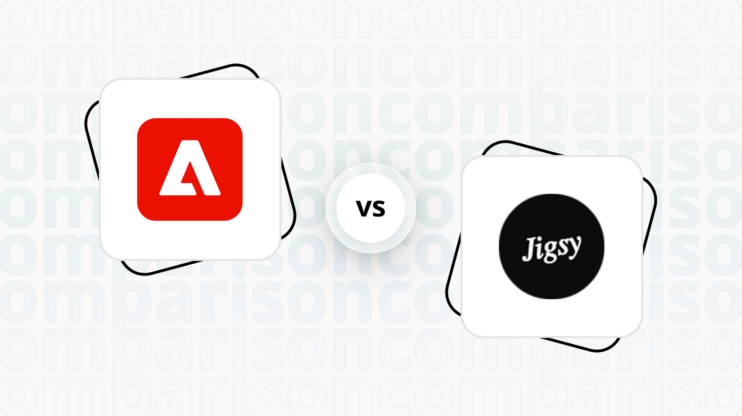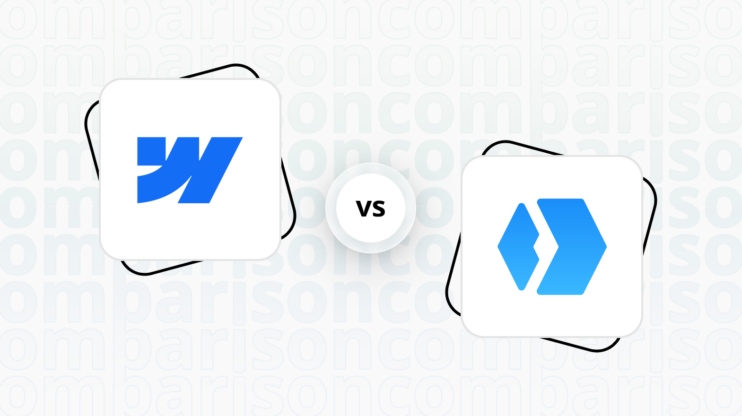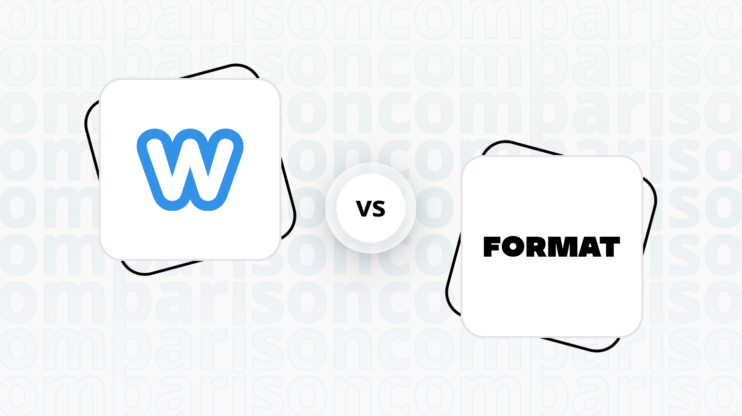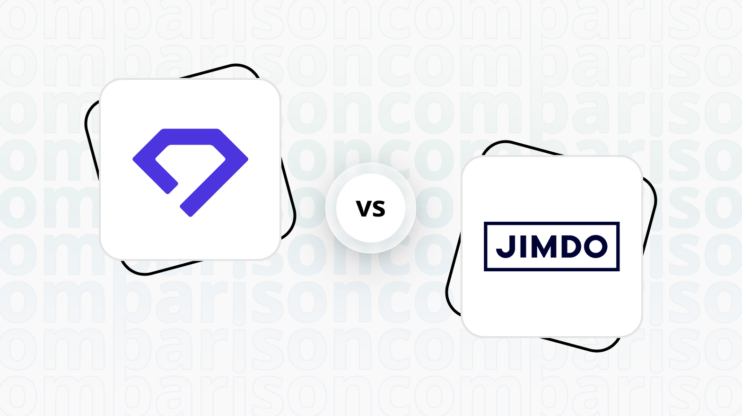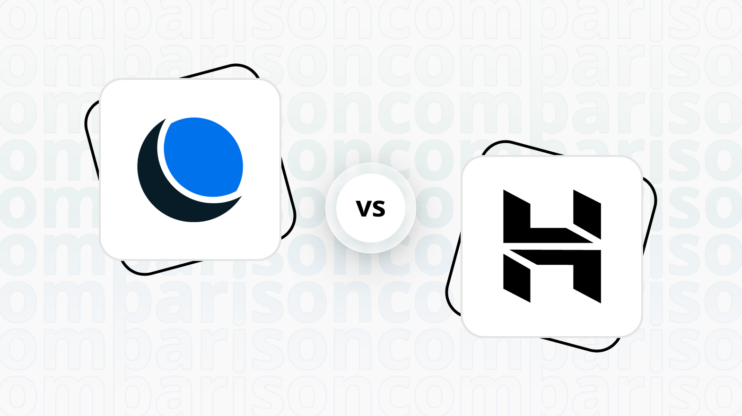Final verdict
Drupal vs Zoho Sites both offer unique advantages, but they cater to different user needs and preferences.
-
Drupal (Overall Grade: 6.4/10)
is a powerful open-source CMS known for its flexibility and extensibility, making it ideal for developers and users who need to build complex websites with custom functionalities. It excels in design functionalities, plugins and integrations, and security. However, its steep learning curve and the need for technical knowledge can be challenging for beginners. Drupal is best suited for users who require a highly customizable and scalable platform for a variety of website types, from personal blogs to corporate and government sites. -
Zoho Sites (Overall Grade: 7.6/10)
is a user-friendly website builder and hosting platform that offers a range of customizable templates and a visual editor for easy website creation without coding. It scores higher in ease of use, hosting quality, and website speed optimization. Zoho Sites is perfect for small businesses, creatives, and users who need a straightforward and efficient way to build and manage their websites. Its seamless integration with other Zoho products and comprehensive customer support make it an attractive option for those looking for an all-in-one solution.

|

|
|
|---|---|---|
|
Design functionalities & templates |
7.8 |
7.4 |
|
Ease of use |
5.4 |
7.0 |
|
Ecommerce |
7.5 |
7.4 |
|
Website Editors |
7.5 |
7.5 |
|
Product testing options |
7.1 |
8.8 |
|
Price |
5.7 |
8.6 |
|
Hosting quality |
0 |
8.0 |
|
Website speed optimization |
6.4 |
7.1 |
|
Plugins and integrations |
8.6 |
7.3 |
|
Marketing features |
8.0 |
7.6 |
|
Customer support |
6.7 |
8.3 |
|
Security |
8.3 |
8.1 |
|
AI capabilities |
7.5 |
7.5 |
|
User Management |
9.1 |
7.3 |
| Overall |
6.4 |
7.6 |
Best for ecommerce
 7.5
7.5
 7.4
7.4
Verdict
: Drupal vs Zoho Sites both offer robust ecommerce solutions, but they cater to different needs. Drupal is ideal for those who need extensive customization and flexibility, while Zoho Sites is better suited for users looking for an integrated, user-friendly experience.
-
Drupal
: Known for its flexibility and extensive module ecosystem, Drupal is a powerful choice for ecommerce. It offers a wide range of features, including product management, payment gateway integration, and customizable workflows. However, it has a steep learning curve and may require significant customization. Best For Ecommerce score: 7.5. -
Zoho Sites
: This platform integrates seamlessly with Zoho Commerce, providing a straightforward solution for ecommerce needs. It offers essential features like product and inventory management, payment processing, and marketing tools. While it may not be as customizable as Drupal, it is user-friendly and efficient. Best For Ecommerce score: 7.4.
Best for informational & business websites
 7.5
7.5
 7.9
7.9
Verdict
: When it comes to creating informational and business websites, Zoho Sites has a slight edge over Drupal due to its user-friendly interface and efficient hosting services. However, Drupal’s flexibility and extensive customization options make it a strong contender for more complex and tailored website needs.
-
Drupal
: Drupal is a powerful open-source CMS known for its flexibility and extensibility. It offers a wide range of modules and themes, making it suitable for various types of websites, from personal blogs to corporate sites. However, its steep learning curve can be challenging for beginners, and it does not offer built-in hosting services, which means users need to rely on third-party hosting providers. Drupal scored 7.5 in the “Best For Informational Business Websites” category. -
Zoho Sites
: Zoho Sites is a user-friendly website builder and hosting platform that provides a collection of customizable templates and a visual editor for easy website creation. It offers efficient hosting with a focus on speed and a 99.9% uptime guarantee. Zoho Sites is particularly suitable for users with basic needs and some technical knowledge, making it an excellent choice for creating informational and business websites. Zoho Sites scored 7.9 in the “Best For Informational Business Websites” category.
Detailed comparison
Design functionalities & templates
Design FunctionalitiesRepresents how well each platform allows for creative design and customization of websites.Score Components:
- Template Variety (30%): Range and quality of design templates.
- Customization (30%): Flexibility and options for design alterations.
- User Interface (20%): Ease and intuitiveness of the design process.
- Responsiveness (10%): Adaptability to different devices and screen sizes.
- Innovation (10%): Unique design features and tools.
 7.8
7.8
 7.4
7.4
🏆
Winner: Drupal.
If you’re looking for a platform that offers more flexibility and extensibility, Drupal is the preferred choice.
Drupal, as a highly flexible and powerful content management system, offers a vast array of templates and designs to cater to virtually any website need. With thousands of themes available, users can choose from minimalist designs, industry-specific layouts, and highly customizable multipurpose themes. These templates are designed to be responsive, ensuring that websites look great on any device. Moreover, the Drupal community continuously contributes new designs and templates, expanding the options for users to keep their websites modern and engaging.
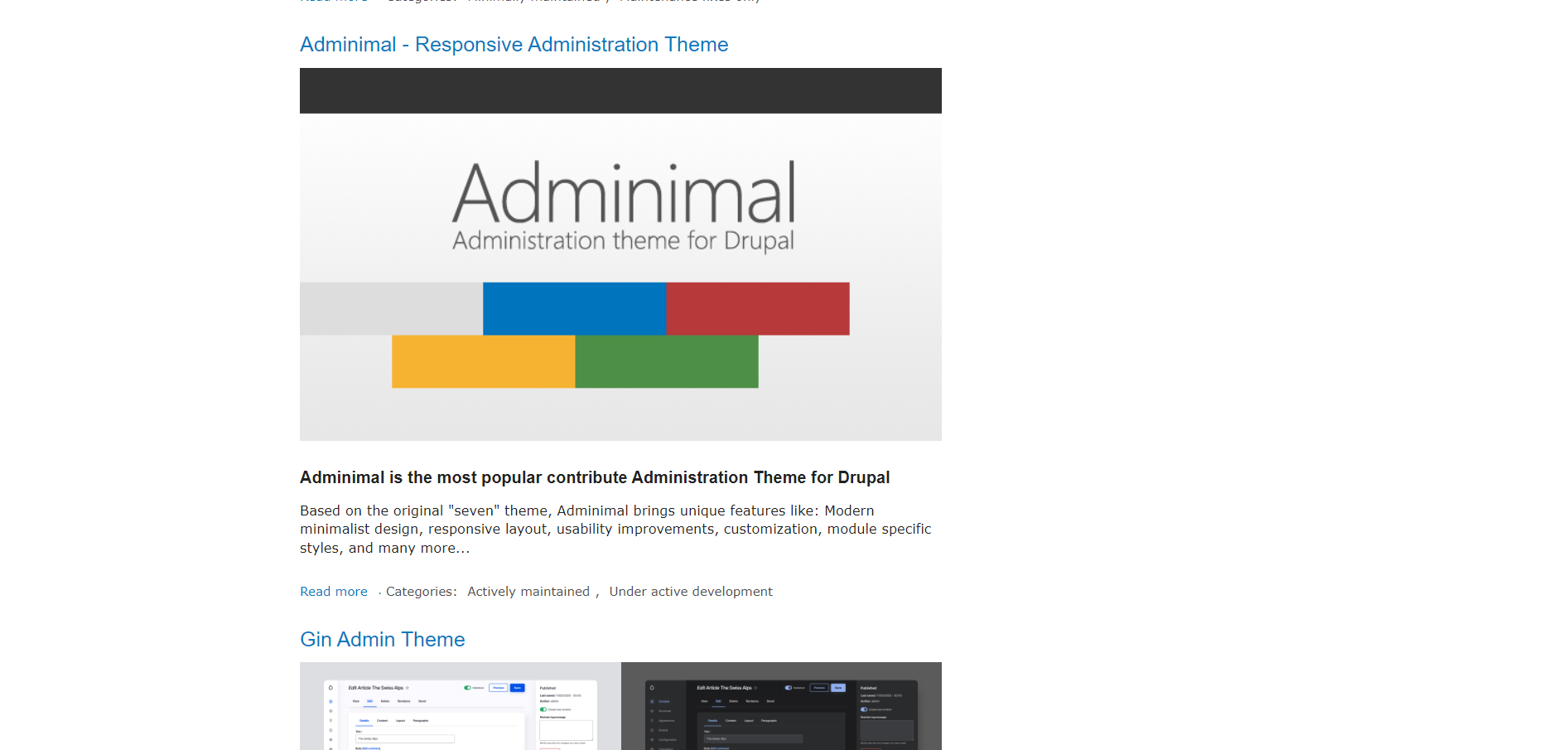
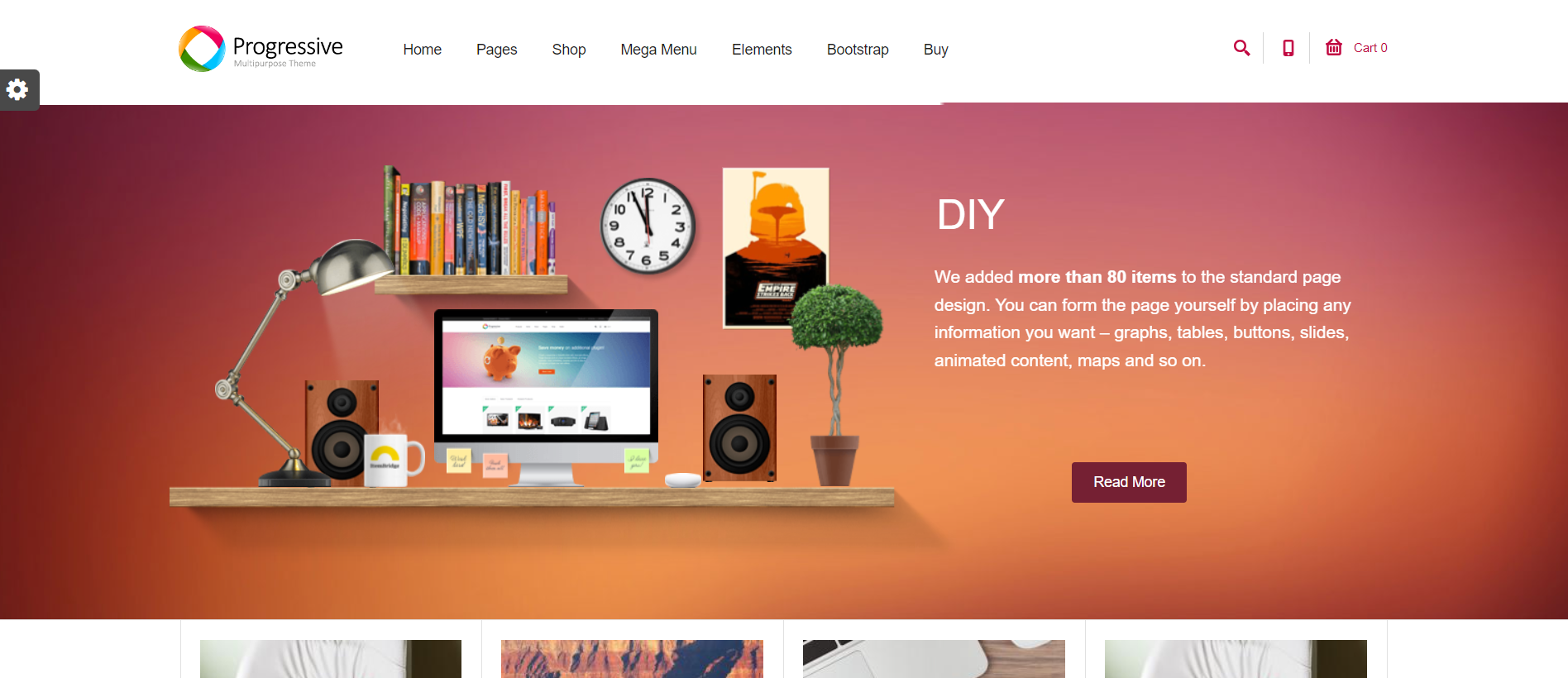
Compared to Drupal, Zoho Sites offers a diverse collection of over 150 templates, thoughtfully categorized into industries like Restaurants, Architecture, Health, and more. Each template provides a pre-designed layout with responsive design for various screen sizes. Customization options include visual elements such as colors, fonts, and images, as well as the ability to modify layouts and content using the visual editor. For advanced users on the Advanced Plan, there’s the option to leverage HTML and CSS for deeper customization.
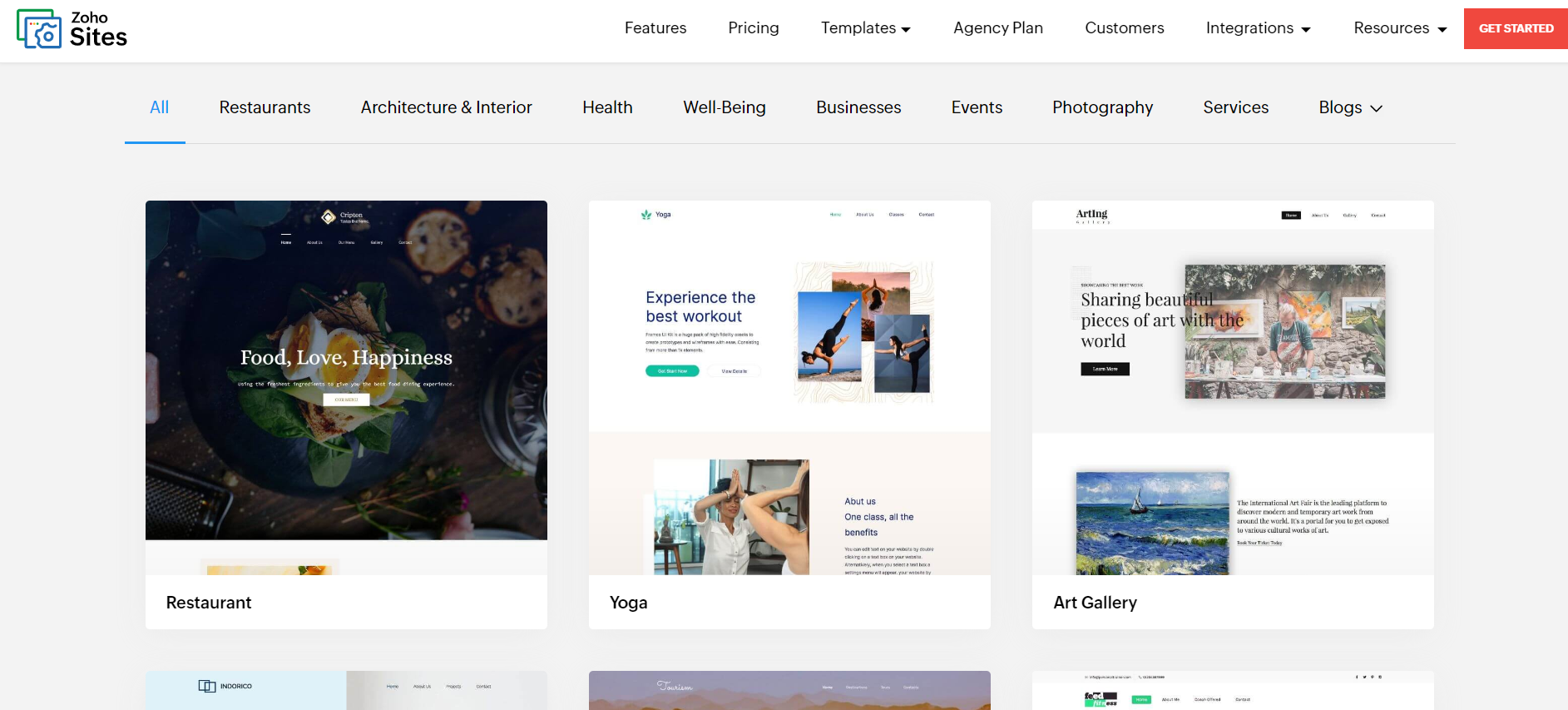

Get a head start on website creation with AI
Create a custom website tailored to your business needs 10X faster with 10Web AI Website Builder!
Ease of use
Ease of useReflects the platform’s overall user-friendliness.Score
Components:
- Learning curve (40%): Quickness and ease of getting started.
- Interface design (30%): Simplicity and intuitiveness of layout.
- User guidance (20%): Quality of tutorials and support.
- Flexibility (10%): Adaptability to various user skills.
 5.4
5.4
 7.0
7.0
🏆 Winner: Zoho Sites
. With a score of 7.0, Zoho Sites is more user-friendly than Drupal, which scored 5.4. Zoho Sites offers a clean interface, logical workflows, and helpful guides, making it suitable for those with basic needs and some technical knowledge. On the other hand, Drupal’s flexibility and extensibility make it a powerful platform for building complex websites and applications, but its steep learning curve can be challenging for beginners.
Learning Resources
Both Drupal and Zoho Sites offer a wealth of learning resources. Drupal provides extensive official documentation, a vibrant community forum, and a variety of online courses and tutorials. Zoho Sites offers a detailed beginner’s guide, comprehensive user guides, video tutorials, blogs, FAQs, community forums, and webinars.
For ecommerce
EcommerceMeasures the platform’s effectiveness in supporting online business activities.Score Components:
- Ecommerce themes and templates (20%): Variety and design of templates.
- Product management (25%): Ease of managing and organizing products.
- Payment options (25%): Variety and convenience of payment methods.
- Ecommerce features (20%): Features for managing an ecommerce store.
- Integration (10%): Compatibility with external e-commerce tools and services.
 7.5
7.5
 7.4
7.4
Drupal and Zoho Sites both offer ecommerce capabilities, but they approach it differently. Drupal, with its Drupal Commerce module, provides a flexible ecommerce solution that integrates seamlessly with its content management system. It offers a wide array of features including product management, shopping cart, payment gateway integration, and customizable workflows. However, it has a steep learning curve and may require extensive customization to meet specific ecommerce needs.
On the other hand, Zoho Sites lacks built-in ecommerce features but integrates seamlessly with Zoho Commerce, a dedicated platform for online store management. This allows users to create a website with Zoho Sites and easily incorporate ecommerce functionality through Zoho Commerce.

|

|
|
|---|---|---|
|
Ecommerce themes and templates |
7.8 |
6.5 |
|
Product page customization |
8.3 |
7.0 |
|
Payment processing and commissions |
7.5 |
6.8 |
|
POS capabilities |
5.5 |
5.5 |
|
Payment gateways |
7.7 |
7.2 |
|
Product numbers |
7.0 |
6.0 |
|
Additional ecommerce features |
8.0 |
7.3 |
Drupal ecommerce features:
- Shopping Cart and Checkout Process
- Payment Gateway Integration
- Order Management and Invoicing
- Tax Calculation and VAT Support
- Shipping and Fulfillment
- Promotions and Discounts
- Reporting and Analytics
- Security and Compliance
Zoho Sites ecommerce features:
- Product and Inventory management
- Order management
- Payment Processing
- Marketing and Promotions
- SEO and Analytics
- Security
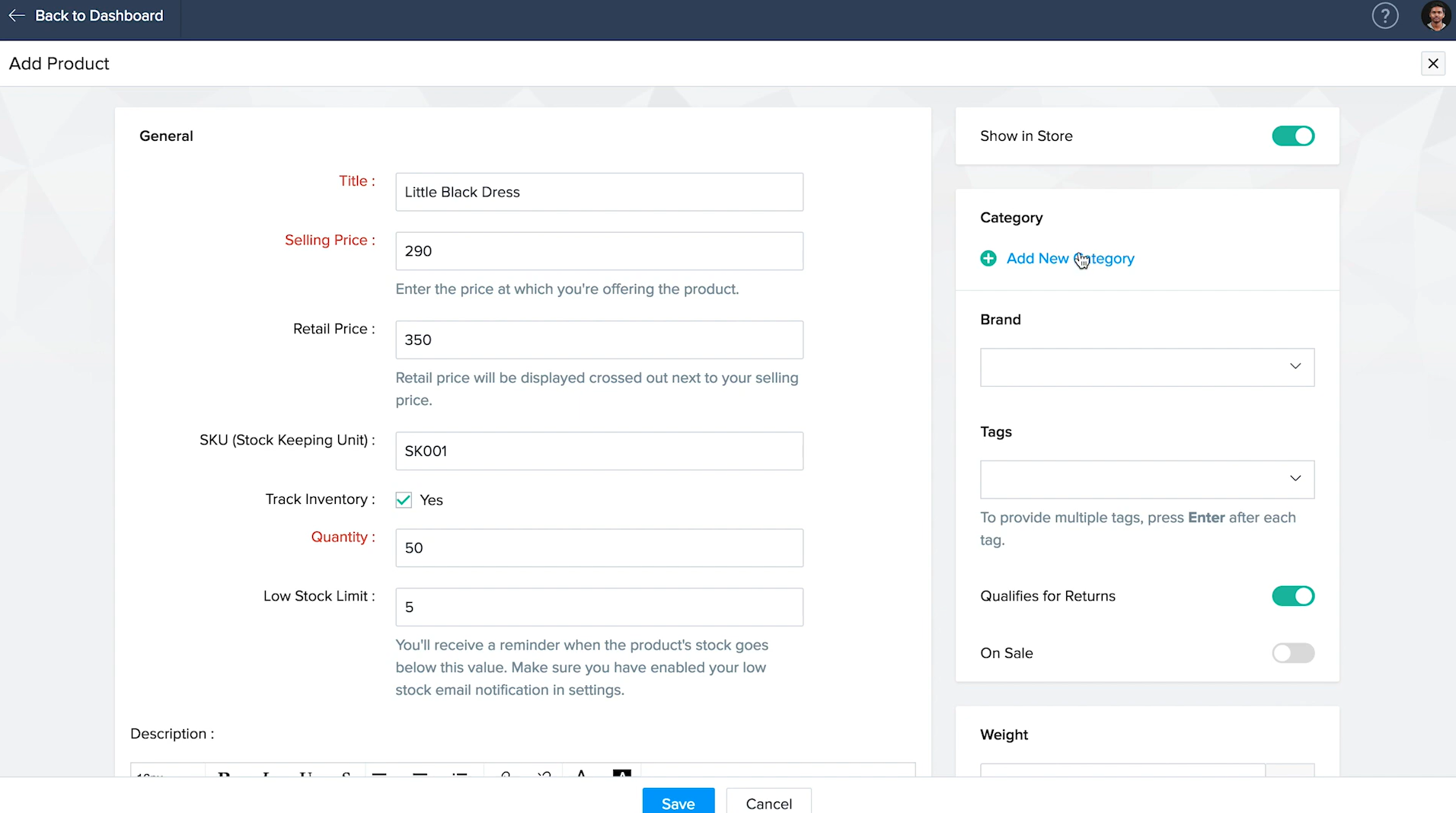
Ecommerce themes & templates
Drupal offers a wide array of ecommerce themes designed to cater to different types of online stores. These themes are built with responsiveness in mind, ensuring that stores function seamlessly across various devices. On the other hand, Zoho Sites offers a range of ecommerce website templates and themes designed to cater to various industries and business needs. These templates are customizable, allowing businesses to tailor their online stores to their brand and product offerings.
Product page customization
Drupal offers extensive customization possibilities for product pages through its modular architecture, allowing for detailed content types, flexible displays with Views, and theme customizations. The Drupal Commerce module enriches ecommerce functionalities, enabling tailored product management, checkout flows, and payment systems. Zoho offers extensive product page customization options, allowing users to tailor the display of their products. This includes features like image galleries, sliders, and video integration, enabling businesses to present their products in a visually appealing manner.
Payment processing
Drupal supports a wide range of payment gateways through third-party modules, including popular ones like PayPal, Stripe, and Authorize.Net. While Drupal itself does not charge any commissions or transaction fees, the individual payment gateways integrated with it do have their own fee structures. Zoho Sites, in conjunction with Zoho Commerce, offers robust payment processing capabilities and supports integration with multiple payment gateways like PayPal, Stripe, and Square, facilitating secure online transactions.
Website Editors
Website EditorsEvaluates the platforms’ website building and editing capabilities.Score Components:
- Customization tools (40%): Range and power of editing features.
- Editor usability (30%): User experience within the editor.
- Design flexibility (20%): Freedom in layout and design changes.
- Update and maintenance ease (10%): Simplicity of updating and maintaining the site.
 7.5
7.5
 7.5
7.5
🏆
Winner: Tie
. Both Drupal and Zoho Sites scored 7.5 for their website editors.
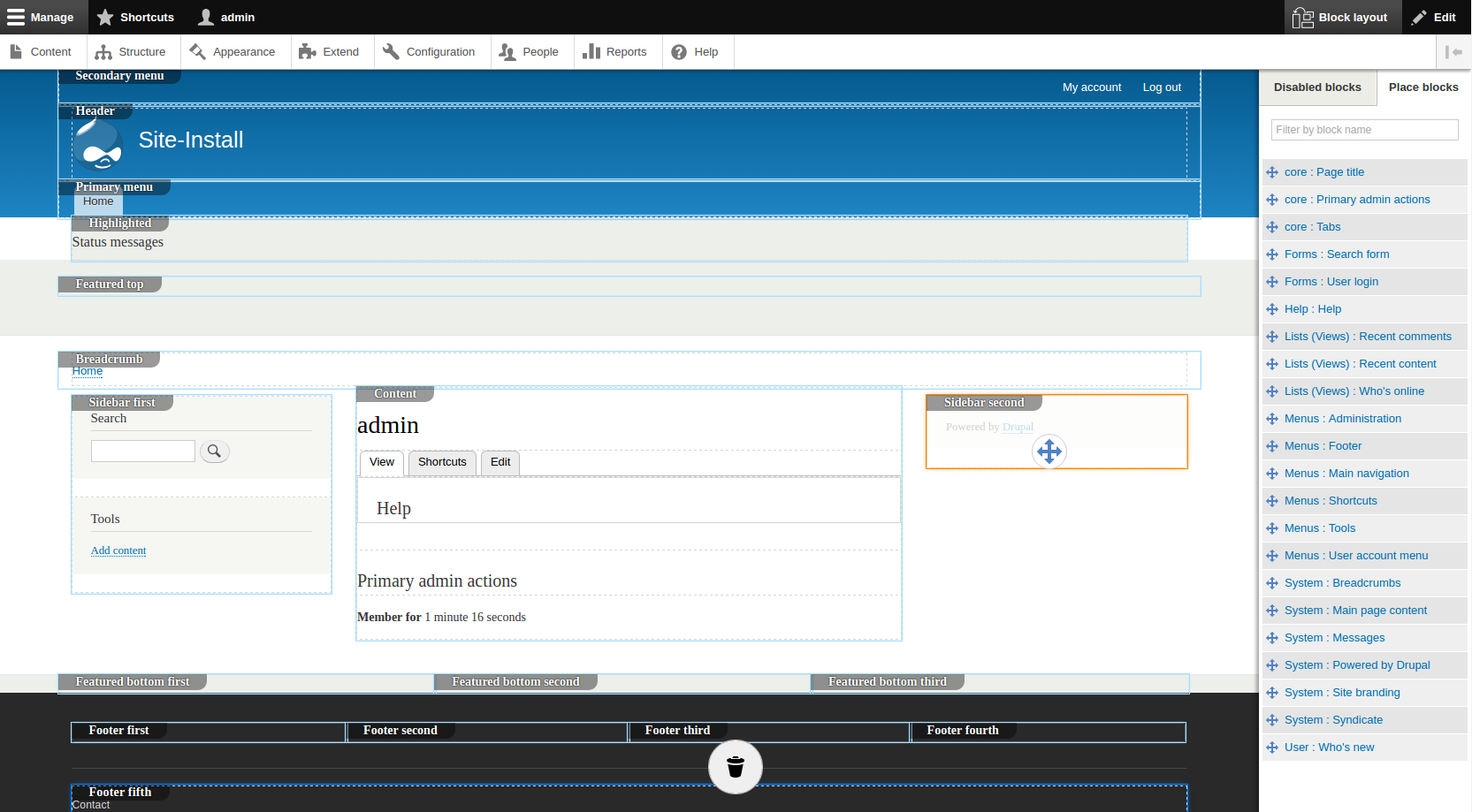
Drupal’s editor, commonly integrated through modules such as CKEditor, offers a wide range of features tailored for content creation and management. It supports rich text editing, enabling users to format text, insert links, images, and media, as well as create tables and lists with ease. The editor is highly customizable, allowing administrators to configure toolbars and options according to the needs of their site. However, it can pose challenges for beginners due to its wide range of features and customization options.
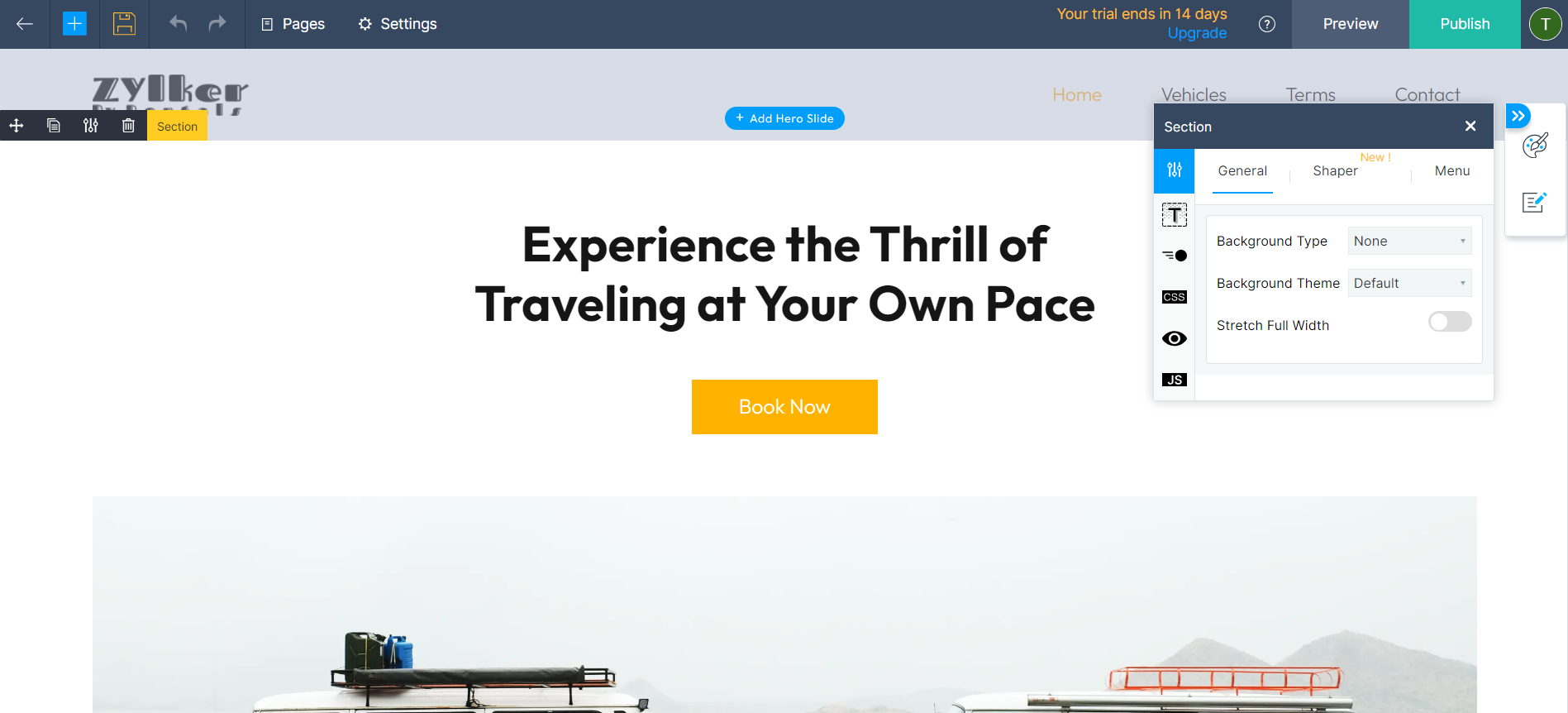
On the other hand, Zoho Sites offers a user-friendly website editor with an intuitive, drag-and-drop interface that makes website design straightforward and accessible, even for those with no technical background. The visual editor further simplifies the customization process, enabling users to tweak the look and feel of their website sections without any coding knowledge. This approach to website building emphasizes simplicity, allowing for the quick and easy creation of professional websites.
Mobile editor/app
 0
0
 5.5
5.5
🏆
Winner: Zoho Sites
. Both Drupal and Zoho Sites have limitations when it comes to mobile editing. Drupal does not have a dedicated mobile editor app, which means users cannot edit their websites on the go using a mobile device.
On the other hand, Zoho Sites does not have a dedicated website editor app either, but it does allow users to edit the visual aspects of the mobile version of their website, such as font size, color, background, and shadow. However, it does not allow content changes through the mobile interface.
Despite this limitation, Zoho Sites still offers more mobile editing capabilities than Drupal, making it the winner in this category.
Product testing options
Product Testing OptionsAssesses the options for trying out platform features before commitment.Score Components:
- Trial quality (40%): Extent and usefulness of the trial or free version.
- Feature accessibility (30%): How many features are available to test.
- Trial duration (20%): Length of the trial period.
- Ease of transition (10%): Smoothness of moving from trial to paid plans.
 7.1
7.1
 8.8
8.8
Overall Result
:
Zoho Sites Wins
. Zoho Sites scores 8.8, outperforming Drupal which scores 7.1. Zoho Sites offers a 15-day free trial with access to all features of each plan, providing a comprehensive testing experience. Drupal, being an open-source CMS, is free to use but does not offer a trial version or the possibility to test premium features.

|

|
|
|---|---|---|
|
Free Plan |
Yes (open-source software) |
Yes |
|
Trial Duration |
No |
15 days |
|
Testing Premium Features |
No |
All features of each plan during trial |
Price
PriceLooks at the cost-effectiveness and value for money of each platform.Score Components:
- Plan value (40%): What each pricing tier offers.
- Transparency and clarity (30%): Clearness of pricing structures.
- Flexibility of plans (20%): Range of options to suit different budgets.
- Hidden costs (10%): Additional expenses not included in the plan.
 5.7
5.7
 8.6
8.6
Drupal is a free, open-source platform, but requires separate purchases for domain, hosting, and website builder subscriptions. Zoho Sites, on the other hand, offers tiered pricing plans with varying features.

|

|
|
|---|---|---|
|
$0-$10 |
No offering at this amount. |
Starter ($8.00/month): Offers basic features suitable for small websites, including 5 pages, 500MB storage, 10GB bandwidth/month, SSL hosting, domain connection, ad-free experience, and more. Ideal for personal blogs or small business websites. Value for price: 6.5 |
|
$20-$30 |
No offering at this amount. |
Pro ($23.00/month): Upgrades significantly on the Starter plan, offering 50 pages, 100GB storage, unmetered bandwidth, 50 forms, and advanced features like social share button, audio player, comment box, scheduled blog post, and dynamic content. Best suited for professional sites that require more resources and functionalities. Value for price: 8.0 |
|
$30+ |
No offering at this amount. |
Agency ($32.00/month): Tailored for agencies managing multiple sites, providing a bundle plan that offers significant savings and flexibility. Includes all Starter features with the option to add Pro features as needed. Value for Price: 9.0 |
location. As a result in rare cases the prices displayed here can differ from the ones you see on their
websites.
Hosting quality
Hosting
qualityExamines the reliability and performance of the hosting solutions.Score Components:
- Uptime (40%): Consistency and reliability of website availability.
- Speed (30%): Loading times and performance.
- Bandwidth and storage (20%): Sufficiency of resources provided.
- Data centers (10%): Quality and distribution of hosting infrastructure.
 0
0
 8.0
8.0
Winner: Zoho Sites
. Zoho Sites offers efficient hosting with a focus on speed, demonstrated by a high Google PageSpeed Insights score. The platform supports different needs through its shared web hosting service, with storage and bandwidth varying by plan. It also has a 99.9% uptime guarantee and 12 global data centers. On the other hand, Drupal does not offer hosting services directly, so it doesn’t have a hosting quality score.

|

|
|
|---|---|---|
|
Do they offer hosting? |
No |
Yes |
|
Data Centers: |
Depends on hosting provider |
12 Globally: Canada(Montreal and Toronto), US(Quincy and Dallas), India(Mumbai and Chennai), Australia(Sydney and Melbourne), China(Beijing and Shanghai), Japan(Tokyo and Osaka) |
|
Type of hosting: |
Depends on hosting provider |
Managed Hosting |
|
Uptime: |
Depends on hosting provider |
99.9% |
|
Uptime Guarantee: |
Depends on hosting provider |
Yes, 99.9% |
Website Speed Optimization
Website Speed OptimizationEvaluates optimization of website loading timesScore Components:
- PageSpeed Score (30%): Google’s score indicating performance optimization.
- Loading Time (30%): The average time until a website is fully interactive.
- Mobile Optimization (15%): Optimization effectiveness for mobile devices.
- Resource Optimization (15%): Optimizing images, scripts, and other heavy resources.
- CDN Usage (10%): Use of CDN to enhance speed across geolocations.
 6.4
6.4
 7.1
7.1
🏆 Winner: Zoho Sites
Both Drupal and Zoho Sites prioritize website performance and page speed, but Zoho Sites edges out Drupal in this category due to its more streamlined approach to speed optimization and better average load times and PageSpeed scores.

|

|
|
|---|---|---|
|
Focus |
User-driven optimization |
Regular updates, optimized code |
|
Performance Tools |
User-selected |
Built-in tools |
|
Key Strategies |
User-guided optimization |
Regular testing, cache balancing |
|
Load Times |
Varies widely, dependent on optimization |
Below 2-5 seconds average |
|
Page Speed Scores Range |
Varies widely, dependent on optimization |
70-80/100 average |
|
Core Web Vitals Improvement |
User-dependent |
Performance optimization techniques |
Drupal, an open-source CMS, allows users to optimize almost all aspects of their website. However, this means that the load times and PageSpeed scores can vary widely depending on the optimization and website complexity. Core Web Vitals improvements are also dependent on the users, as Drupal offers numerous guides and tutorials on speed optimization.
On the other hand, Zoho Sites, a website builder and hosting platform, takes a more streamlined approach to speed optimization. It regularly tests and implements updates, uses optimized code and libraries, and balances cache to improve website speed. As a result, Zoho Sites has an average load time of below 2-5 seconds and an average PageSpeed score of 70-80/100. It also implements various performance optimization techniques to improve Core Web Vitals.
Get a head start on website creation with AI
Create a custom website tailored to your business needs 10X faster with 10Web AI Website Builder!
Plugins and integrations
Plugins and integrationsMeasures the range and effectiveness of additional plugins and integrations.Score Components:
- Variety of options (40%): Range of available add-ons.
- Integration smoothness (30%): Ease of integrating plugins into the site.
- Quality of plugins (20%): Functionality and reliability of the options.
- Custom integration capabilities (10%): Support for custom or third-party integrations.
 8.6
8.6
 7.3
7.3
🏆 Winner: Drupal.
With a score of 8.6, Drupal leads the way with its extensive range of over 51,000 modules, showcasing the extensive contributions from its community. These modules are designed to enhance and tailor Drupal applications to specific needs, emphasizing the platform’s flexibility and openness. Zoho Sites, with a score of 7.3, offers a diverse range of plugins and extensions spanning various categories like marketing, design, social media, SEO, payments, and more. However, Drupal’s vast array of modules and its commitment to accessible and communal software development give it the upper hand.
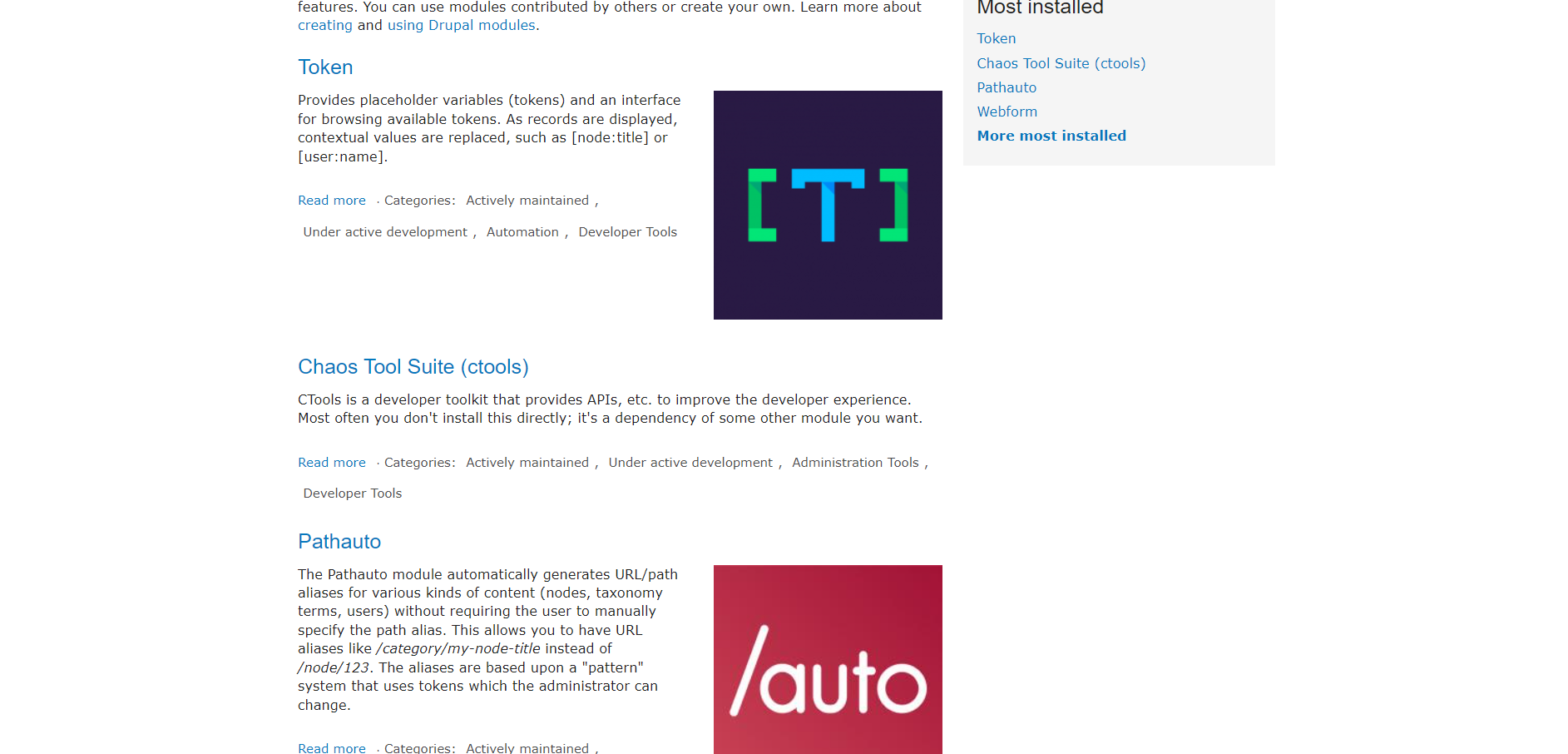
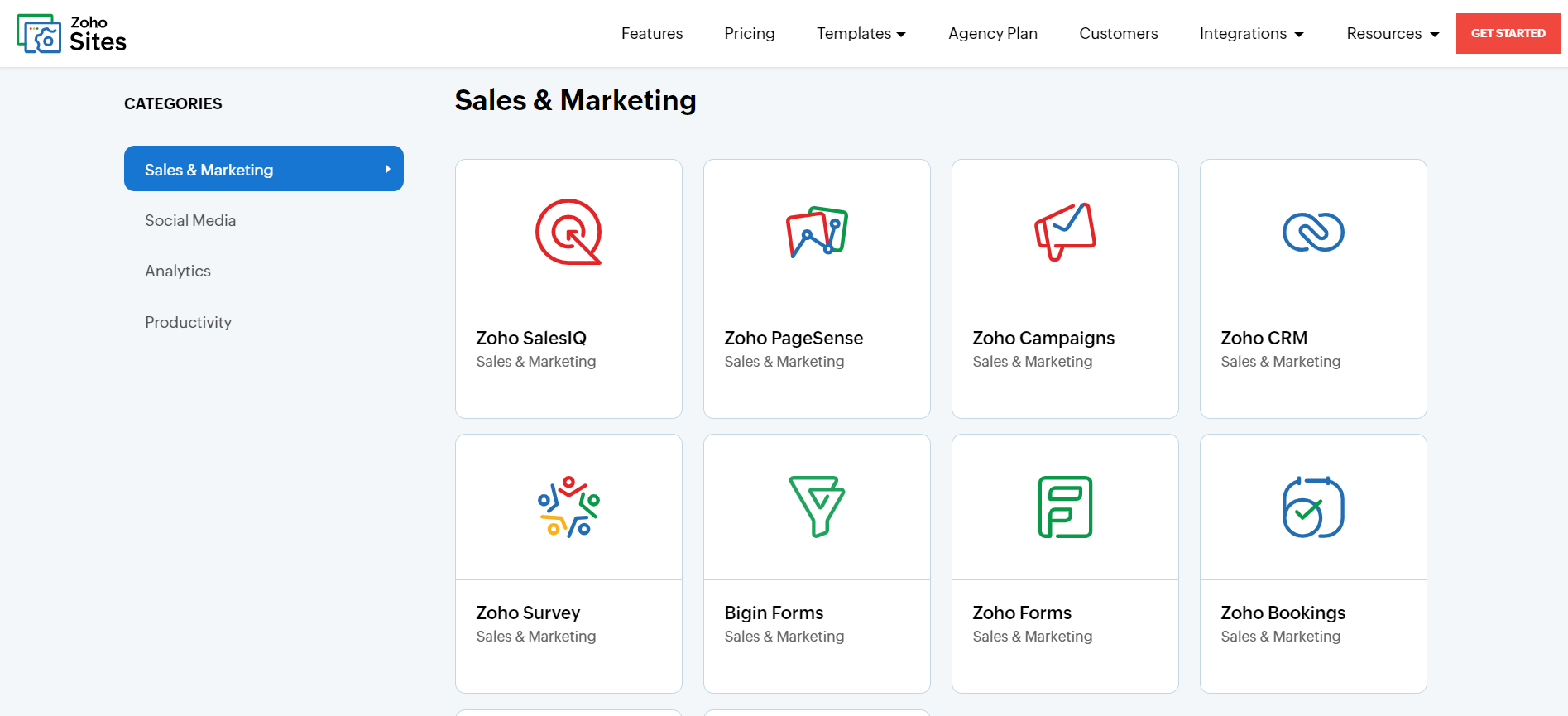
Marketing Features
Design FunctionalitiesRepresents how well each platform allows for creative design and customization of websites.Score Components:
- Template Variety (30%): Range and quality of design templates.
- Customization (30%): Flexibility and options for design alterations.
- User Interface (20%): Ease and intuitiveness of the design process.
- Responsiveness (10%): Adaptability to different devices and screen sizes.
- Innovation (10%): Unique design features and tools.
 8.0
8.0
 7.6
7.6
🏆
Overall Winner: Drupal
. Drupal’s open-source nature and extensive module ecosystem provide a more flexible and customizable platform for marketing features. However, Zoho Sites also offers a comprehensive set of marketing tools, with the added benefit of integration with other Zoho applications.

|

|
|
|---|---|---|
|
SEO Tools |
Yes, with SEO modules such as Yoast SEO |
Yes |
|
Email Marketing |
Yes, but with third-party extensions, such as MailChimp |
Yes, through integration with Zoho Campaigns |
|
Blogging |
Yes |
Yes |
|
Social Media Integration |
Yes |
Yes |
|
Analytics and Reporting |
Yes, basic built-in features, and Google Analytics integrations through modules |
Offers traffic analytics and supports Google Analytics integration for detailed insights |
|
Ads and Promotions |
Yes, but with third-party extensions |
Integrated with Zoho Marketing Automation for managing ads and promotions |
Customer Support
Customer supportEvaluates the quality and availability of support options.Score Components:
- Response time (40%): Speed of support responses.
- Support quality (30%): Effectiveness and helpfulness of the support.
- Availability (20%): Range of support channels (phone, chat, email).
- Resource richness (10%): Quality of self-help and educational materials.
 6.7
6.7
 8.3
8.3
🏆 Winner: Zoho Sites
. In the Drupal vs Zoho Sites comparison, Zoho Sites takes the lead with its 24/7 customer support available through live chat, email, and phone. The platform also offers a comprehensive knowledge base and community forum, ensuring users have access to reliable and prompt support whenever needed. This extensive support system makes Zoho Sites a strong contender for users seeking dependable assistance.
Drupal, on the other hand, provides a range of customer support options, including community support through forums and documentation on Drupal.org, as well as professional 24/7 support services via providers like Drupal Connect. While Drupal’s community support is robust, it may not be as immediately accessible as Zoho Sites’ direct support channels. Additionally, Drupal does not offer dedicated enterprise support, which could be a limitation for larger organizations seeking specialized assistance.
Security
SecurityLooks at the platforms’ security measures and data protection.Score Components:
- Data protection (40%): Safeguards for user and customer data.
- SSL and encryption (30%): Implementation of secure connections.
- Compliance (20%): Adherence to industry security standards.
- Regular updates (10%): Frequency of security updates and patches.
 8.3
8.3
 8.1
8.1
🏆
Winner: Drupal
. Drupal’s open-source nature allows for a high degree of customization and control over security configurations. It offers robust mechanisms for preventing common web vulnerabilities and supports advanced security features like two-factor authentication. Drupal’s dedicated security team continuously works on identifying and fixing vulnerabilities, ensuring a secure environment for website development.
Although it may not offer the same level of flexibility as Drupal, Zoho Sites provides a secure environment for website creation and management. It uses SSL encryption to protect data transmission and offers two-factor authentication for added security. Regular software updates are carried out to address any potential vulnerabilities, ensuring a safe platform for users.
AI Capabilities
AI capabilitiesMeasures the effectiveness of AI-driven features and tools.Score Components:
- Automation efficiency (40%): Impact of AI on streamlining processes.
- Personalization (30%): AI-driven customization for users or customers.
- AI-Assisted design (20%): Role of AI in website design and functionality.
- Data analysis (10%): Use of AI in interpreting user data and analytics.
 7.5
7.5
 7.5
7.5

|

|
|
|---|---|---|
|
AI Builder |
|
|
|
AI Ecommerce features |
Chatbots, content creation, marketing automation, cognitive services |
Unique product recommendations, sales predictions, workflow automation, customer service enhancements |
|
AI Content Generation |
AI Connect, OpenAI, ChatGPT |
Zia Content Assistant |
|
Additional AI Features |
AI-based search enhancements, content personalization, automated content moderation, language translation, content localization, accessibility improvements |
Zia for productivity, sales, and customer service processes |
🏆 Winner: Tie
. Both Drupal and Zoho Sites have integrated AI in various functionalities to enhance user experience and have the same AI capabilities score of 7.5. While Drupal uses AI for chatbots, content creation, marketing automation, and cognitive services, Zoho Sites uses AI for delivering unique product recommendations, sales predictions, workflow automation, and customer service enhancements. Both platforms also use AI for content generation.
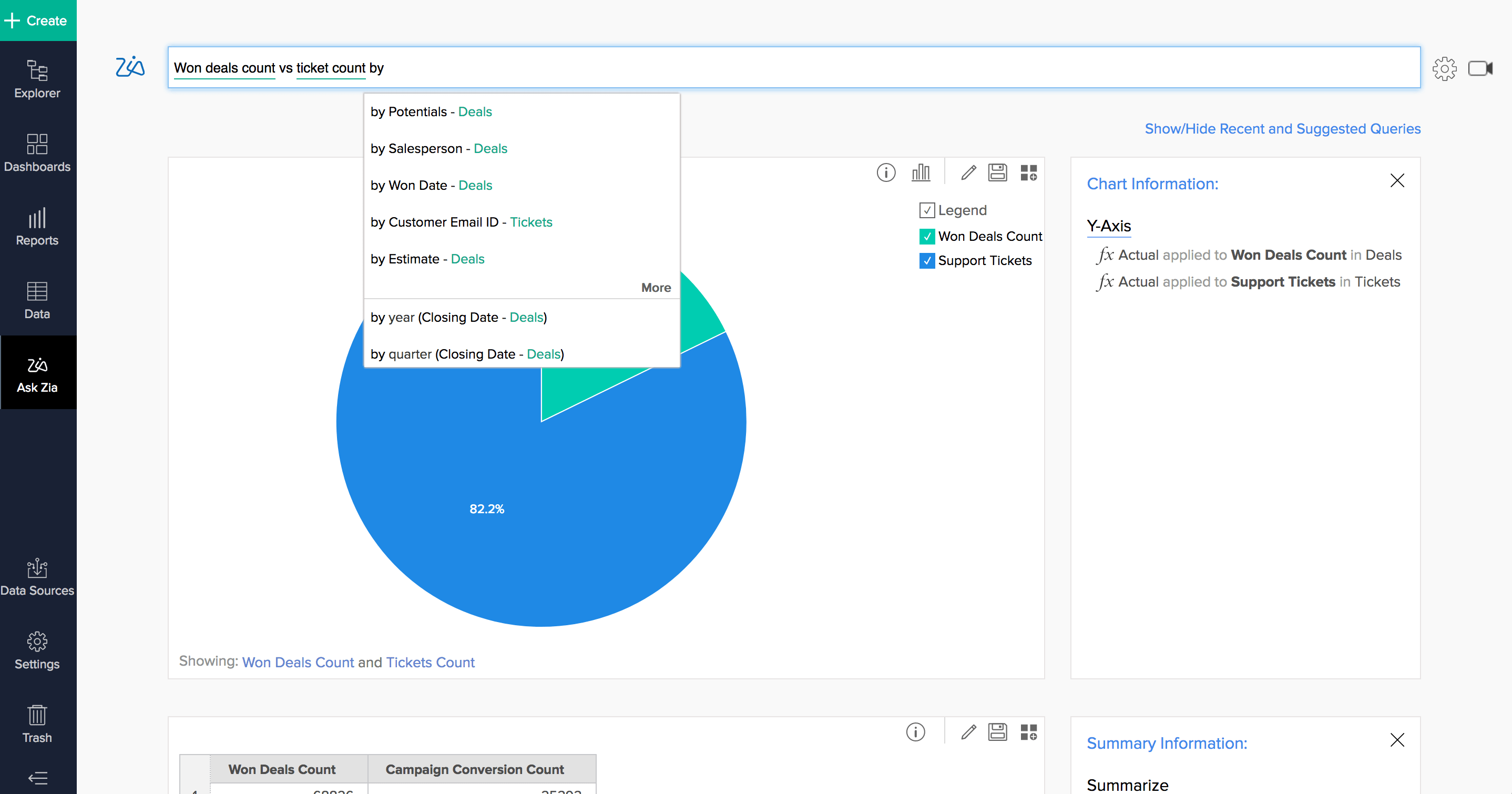
User Management
User ManagementAssesses the platforms’ capabilities in managing user roles, permissions, and accessibility.Score Components:
- Role Customization (40%): Flexibility in creating and defining user roles and
permissions. - Ease of Management (30%): User interface and tools for managing users.
- Access Control (20%): Effectiveness of access control measures for different user
levels. - Scalability (10%): Ability to manage a growing number of users efficiently.
 9.1
9.1
 7.3
7.3
🏆 Winner: Drupal
. Drupal’s flexible permission and role system allows for an unlimited number of users to manage and edit a website, only constrained by server capacity and practical management considerations. Administrators can create various roles, such as “Editor” or “Administrator”, each with customized permissions. There’s no inherent limit in Drupal on the number of users with administrative or editing capabilities, enabling extensive collaboration and content management possibilities.
On the other hand, the number of users who can edit a Zoho Sites website and their access levels depend on the chosen plan. The Free Plan allows only the owner to edit, while paid plans like Pro, Business, and Enterprise offer access for up to 10, 25, and 50 users respectively. Zoho Sites provides four access levels: Admin, with full editing rights and user management; Contributor, who can edit content and create pages but not manage collaborators; and Author, limited to editing text content without access to settings or user management.
Drupal User Roles and Access Levels:
| Role | Description | Access Highlights |
|---|---|---|
| Editor | Users responsible for content creation, editing, and publishing. | Can create, edit, delete, and publish content; can also manage comments. |
| Moderator | Users focused on site moderation, including comment and user management. | Can approve or delete comments, block users, and manage reported content. |
| Administrator | Users with full access to all administrative features of the site. | Can change site configuration, manage all content, users, permissions, and install modules/themes. |
Additional Features

|

|
|
|---|---|---|
|
SSL Certificate |
|
|
|
Custom Domain |
|
|
|
Free Custom Domain Included |
|
|
|
International Domains |
|
|
|
Mobile Responsive |
|
|
|
Page Speed |
|
|
|
Website Builder Mobile App |
|
|
|
Convert a Website To An App |
|
|
|
Website Analytics |
|
|
|
Multilingual Sites |
|
|
|
Multiple Users |
|
|
User Feedback
Users appreciate Drupal for its ease of use, security, and flexibility as an open-source CMS, highlighting its ability to scale and support a variety of websites and applications with modern technology tools. The community and documentation are frequently mentioned positives, providing ample support and resources. However, criticisms include a relative lack of plugins and themes compared to competitors like WordPress, the learning curve for customization without coding, and some challenges with installation and updates. The platform is praised for its robust content management capabilities, enabling users to manage content and user access efficiently. Overall, feedback underscores Drupal’s strength in creating secure, customizable, and scalable web solutions, despite some desires for more intuitive UI and easier setup.
Zoho Sites receives mixed reviews, with users praising its user-friendly interface, extensive template library, and seamless integration with other Zoho products, which simplifies website development and management for small businesses. However, some users express dissatisfaction with its limited design flexibility and the inability to create custom features. Overall, Zoho Sites addresses the need for cost-effective website solutions, particularly for those without coding knowledge, offering a one-stop-shop for building and managing websites with varying degrees of customization and integration with other business tools.
The making of this blog
We followed a clear, step-by-step process to write and research this article.
FAQ
Which platform is better for complex, highly customized websites?
Can I use Zoho Sites for ecommerce?
How do Drupal and Zoho Sites compare in terms of user-friendliness?
Which platform offers better hosting solutions?
How do the platforms compare in terms of security?










